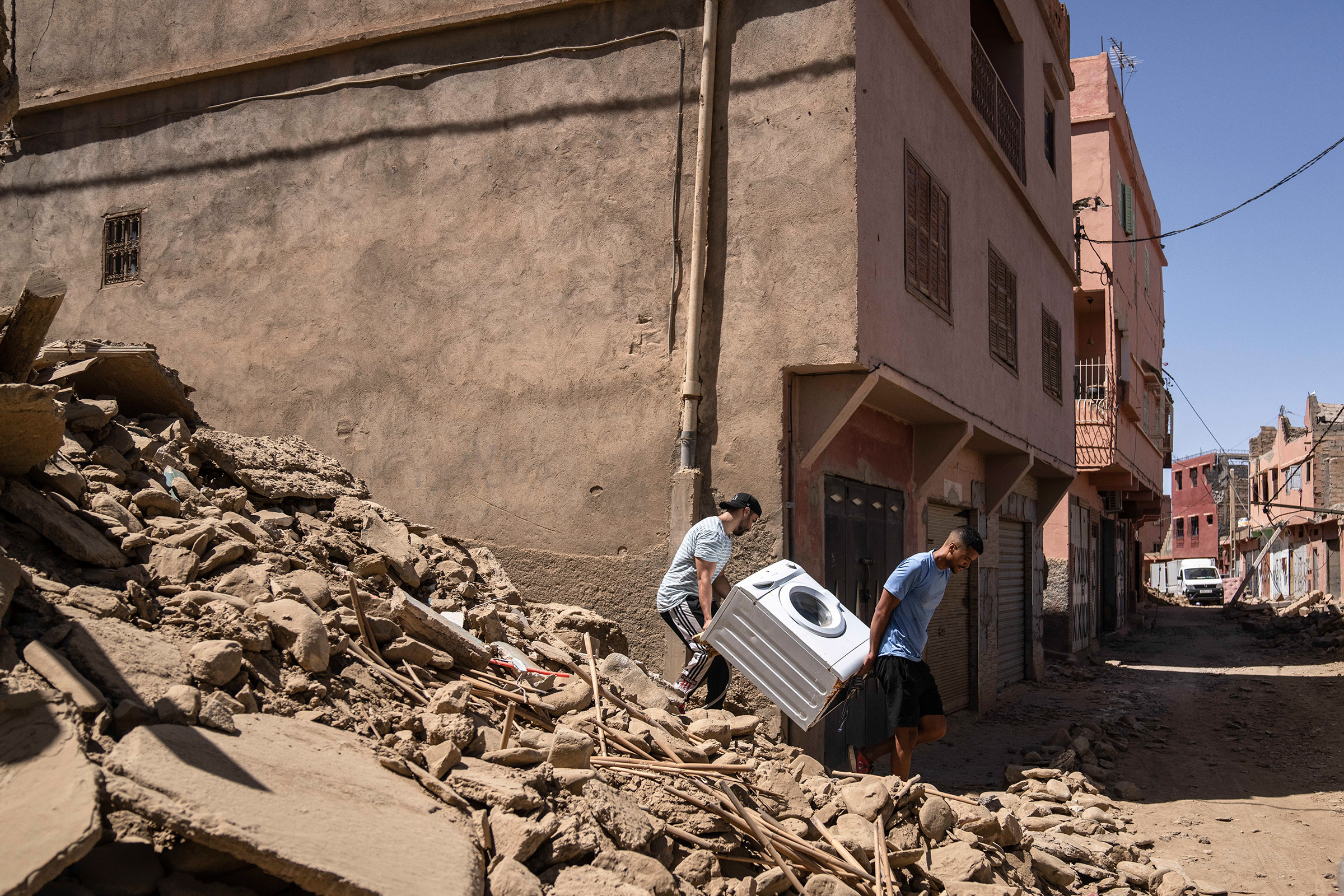People in Marrakech and across Morocco’s High Atlas Mountains slept in the streets for the third straight night after a 6.8 magnitude earthquake Sept. 8 tore down houses and killed more than 2,600 people. This death toll is expected to rise.
“We have nothing left, the house is completely gone,” Hmed Elmouden, told CNN from a small village south of Marrakech that was completely destroyed. “I have no idea what will happen next.”
The earthquake’s epicenter was 45 miles southwest of Marrakech, the fourth-largest city in Morocco, with more than 300,000 people affected, according to the World Health Organisation.
While rescuers have started to reach some of the remote villages in the region, their efforts have reportedly been hindered as dirt roads are blocked by boulders and debris.
Public criticism has been mounting in Morocco over the government’s response to the earthquake. Ambulances have yet to reach many of the affected areas, and many people have had to transport themselves to Marrakech for treatment, according to the New York Times.
While many countries, including France and the U.S., have offered aid, Morocco has so far only accepted help from four countries. Some international aid organizations have complained they are still waiting for permission from the authorities to get to work. “There are people dying under the rubble, and we cannot do anything to save them,” Arnaud Fraisse, founder of Rescuers Without Borders, told the Associated Press. His team is still waiting for a green light to enter Morocco.
“At this time, it’s very difficult because of the high temperatures and the way the buildings have collapsed. I don’t think I’ve seen a survivor being brought out yet,” says David Andersen, a nurse with UK-Med, a British medical charity, from the village of Anougal in the Atlas Mountains. “There are people who have survived but are trapped," he adds.
For people looking to help, Andersen recommends donating money rather than food or blankets, as "the systems tend to get overwhelmed with that kind of thing. And not it’s not always as useful as people may believe it is."
In the areas aid groups have yet to reach, communities have banded together, sharing homes and supplies. “If your house is half damaged and you still have some furniture, some food, you share with people whose houses are fully destroyed,” Ali Ouali Abdelgahni told the Washington Post in the small town of Amizmiz.
“It’s a catastrophe,’’ Salah Ancheu said to the AP from Amizmiz. “We don’t know what the future is. The aid remains insufficient.”
—Anna Gordon contributed reporting
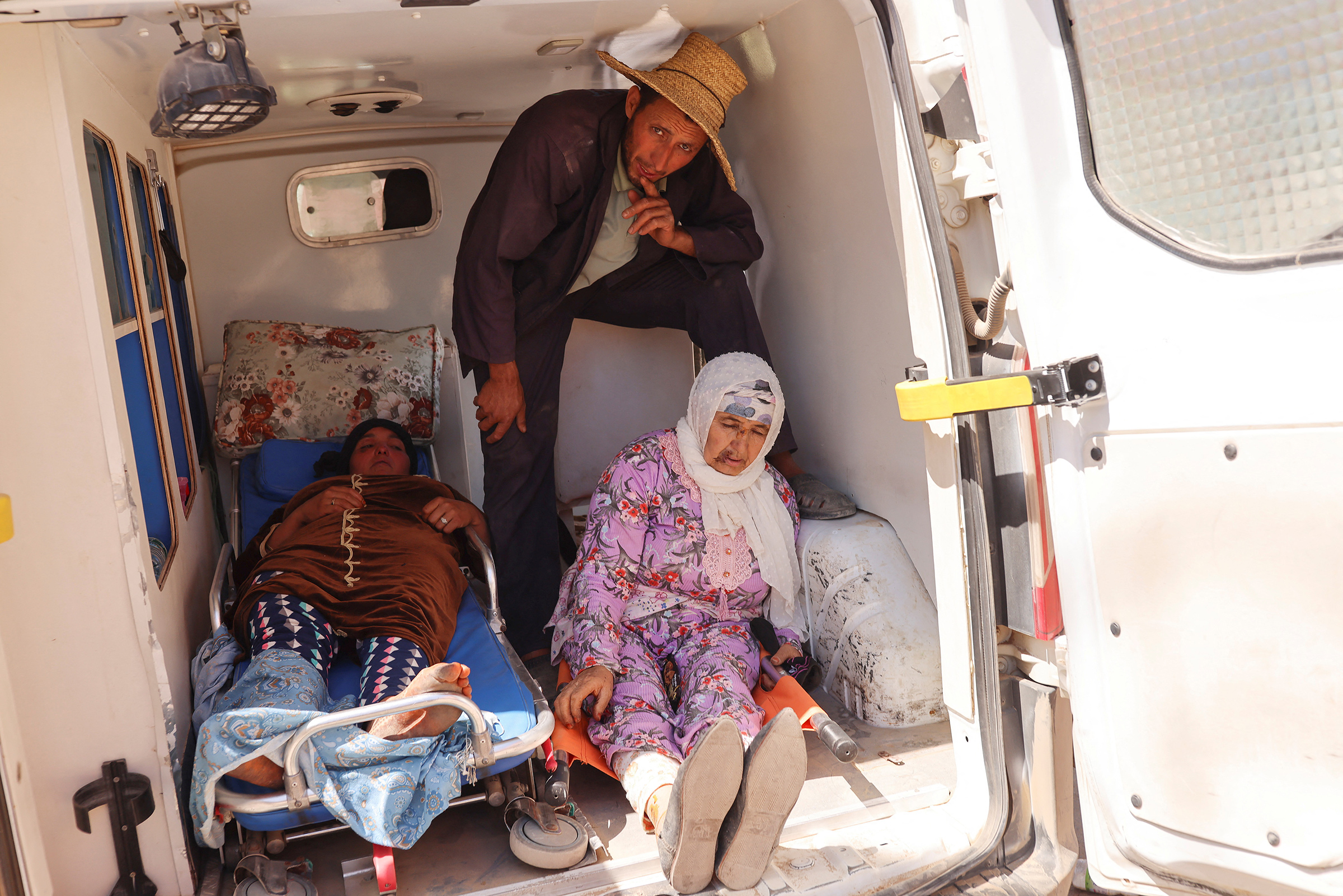
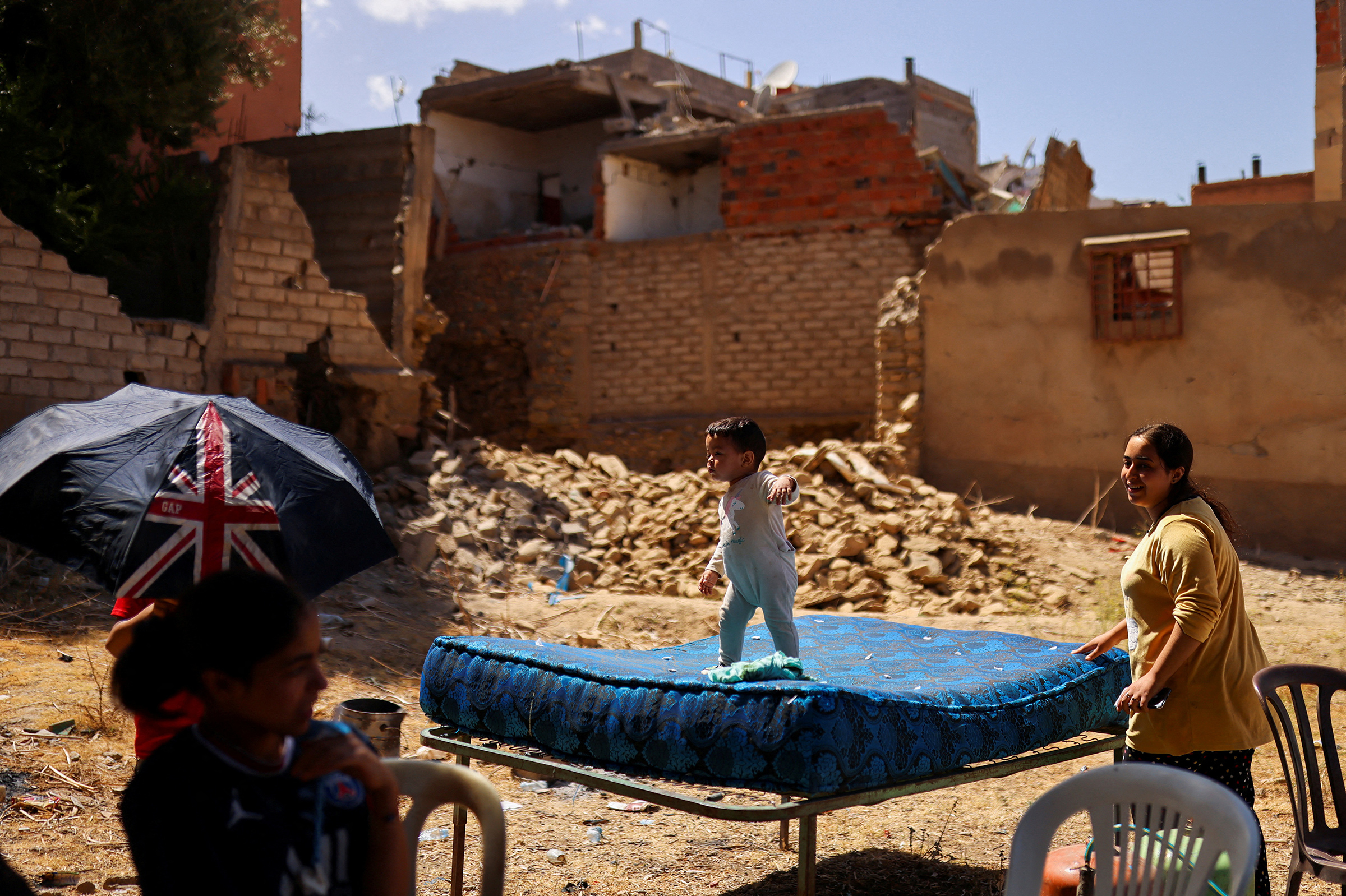
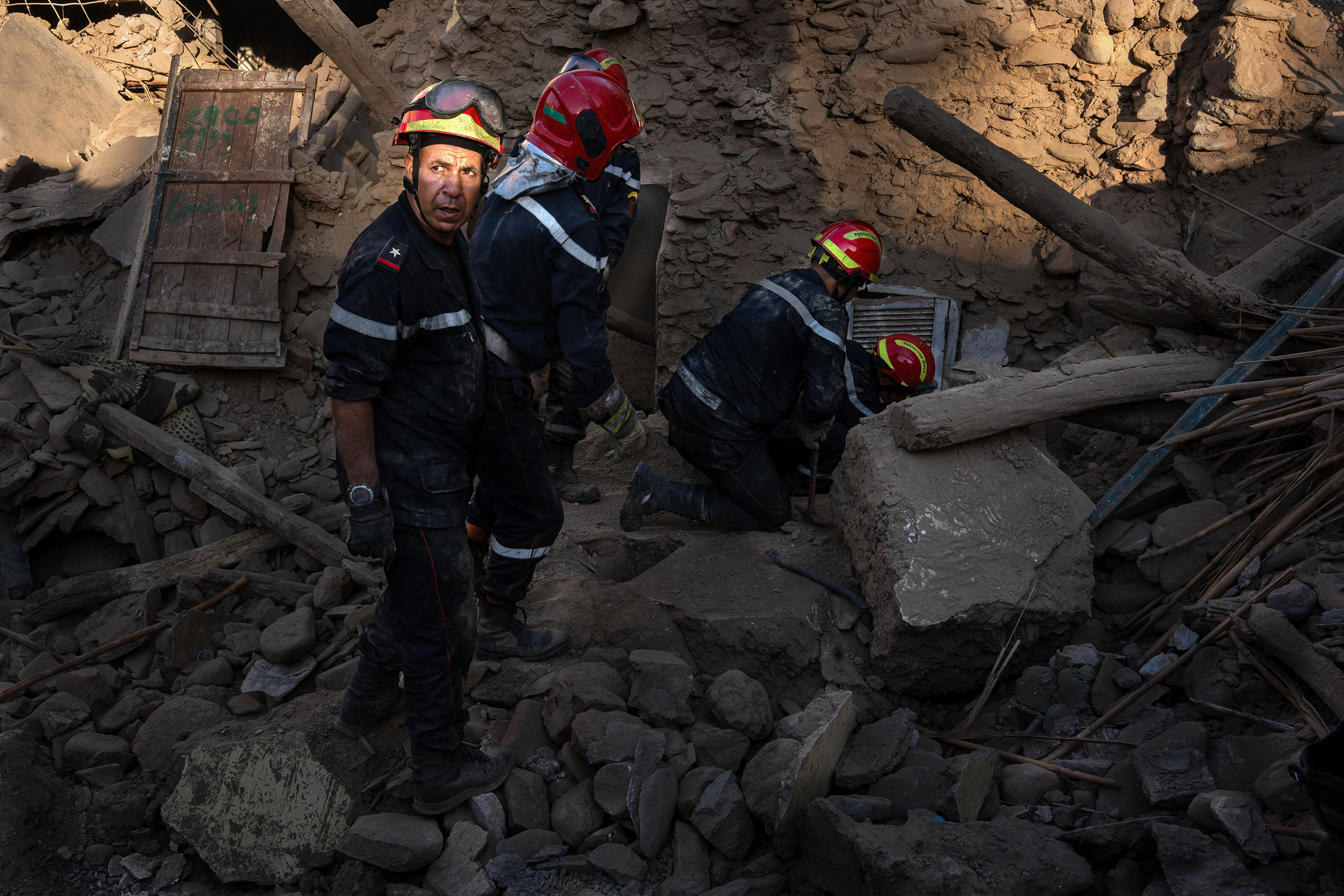
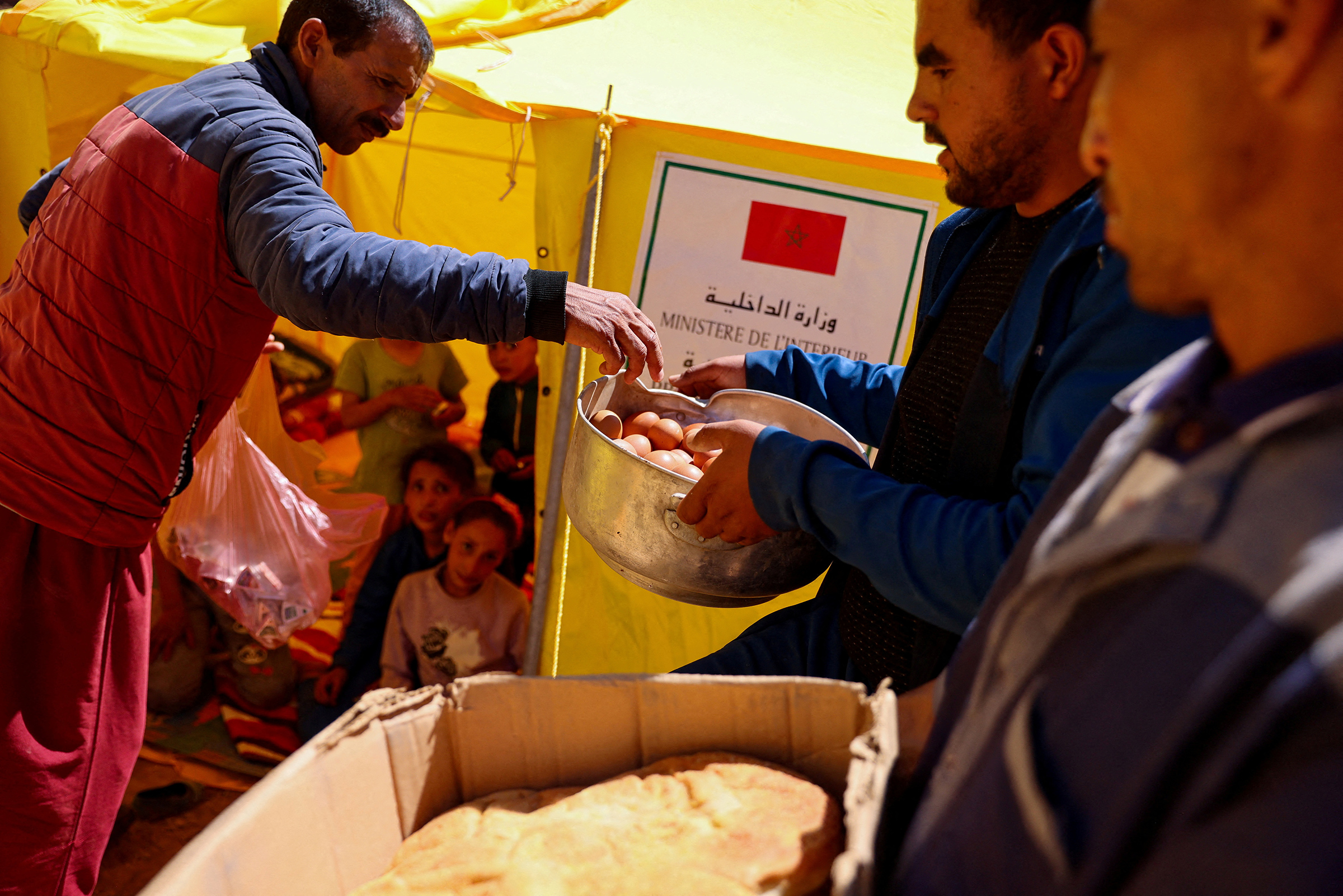
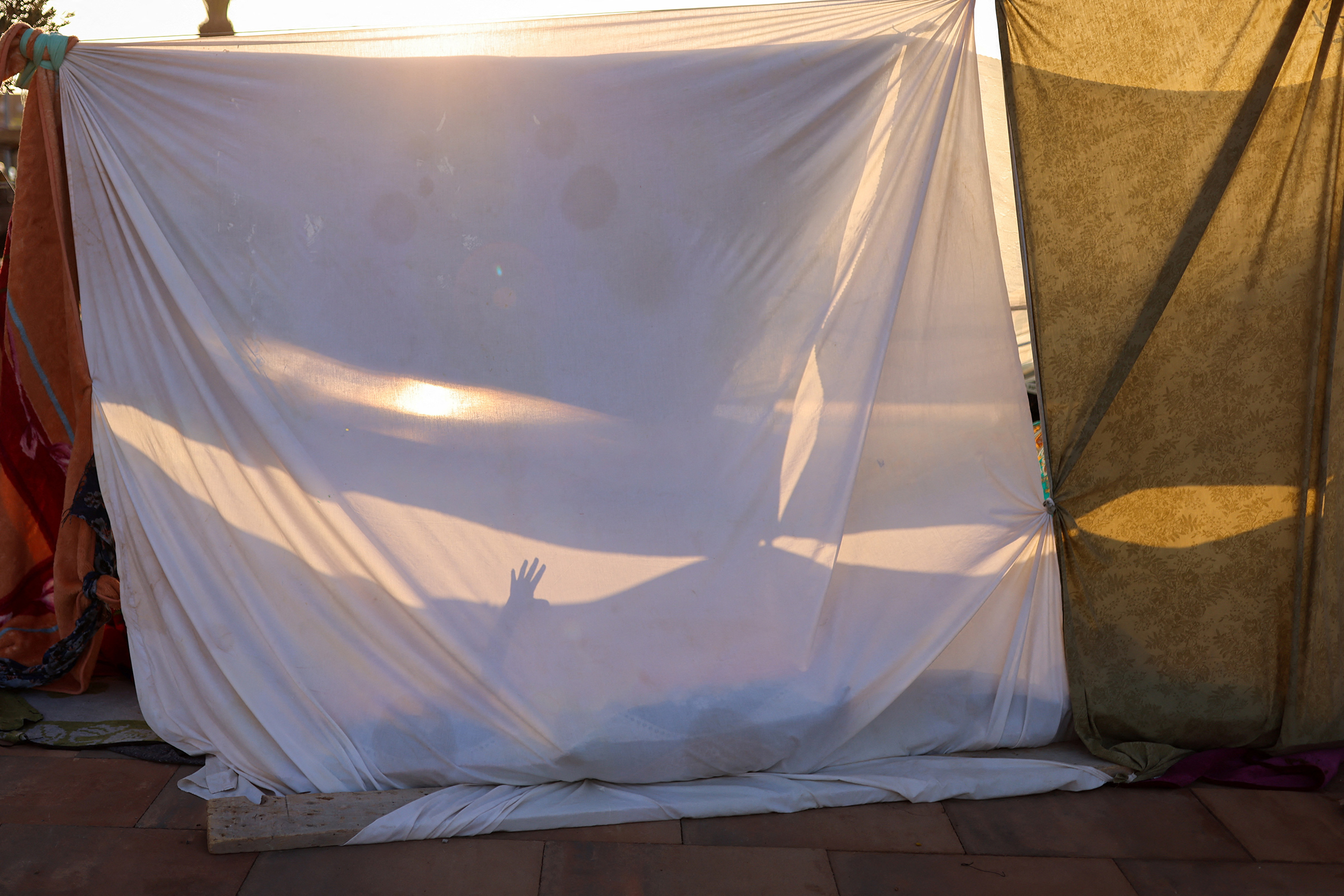
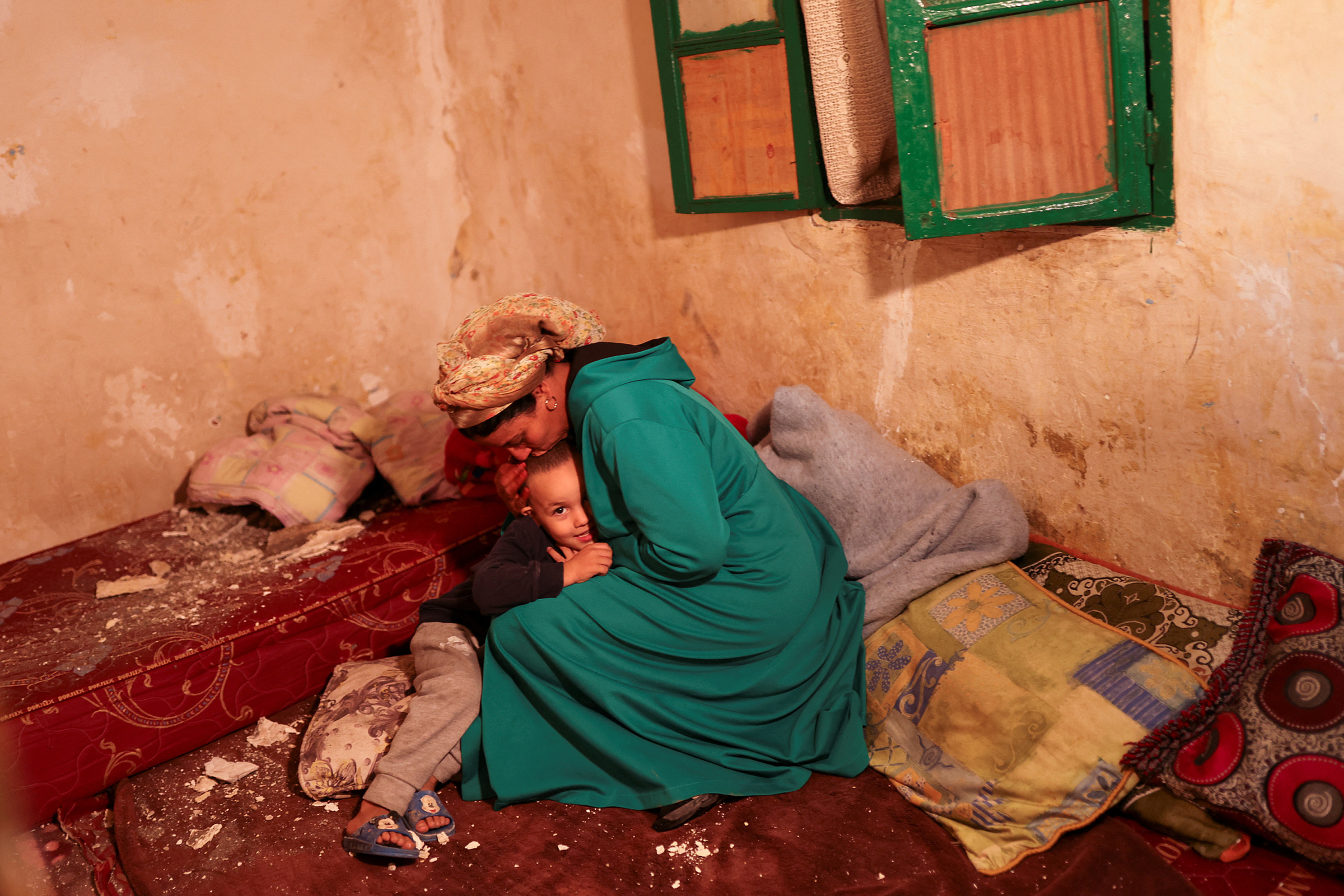
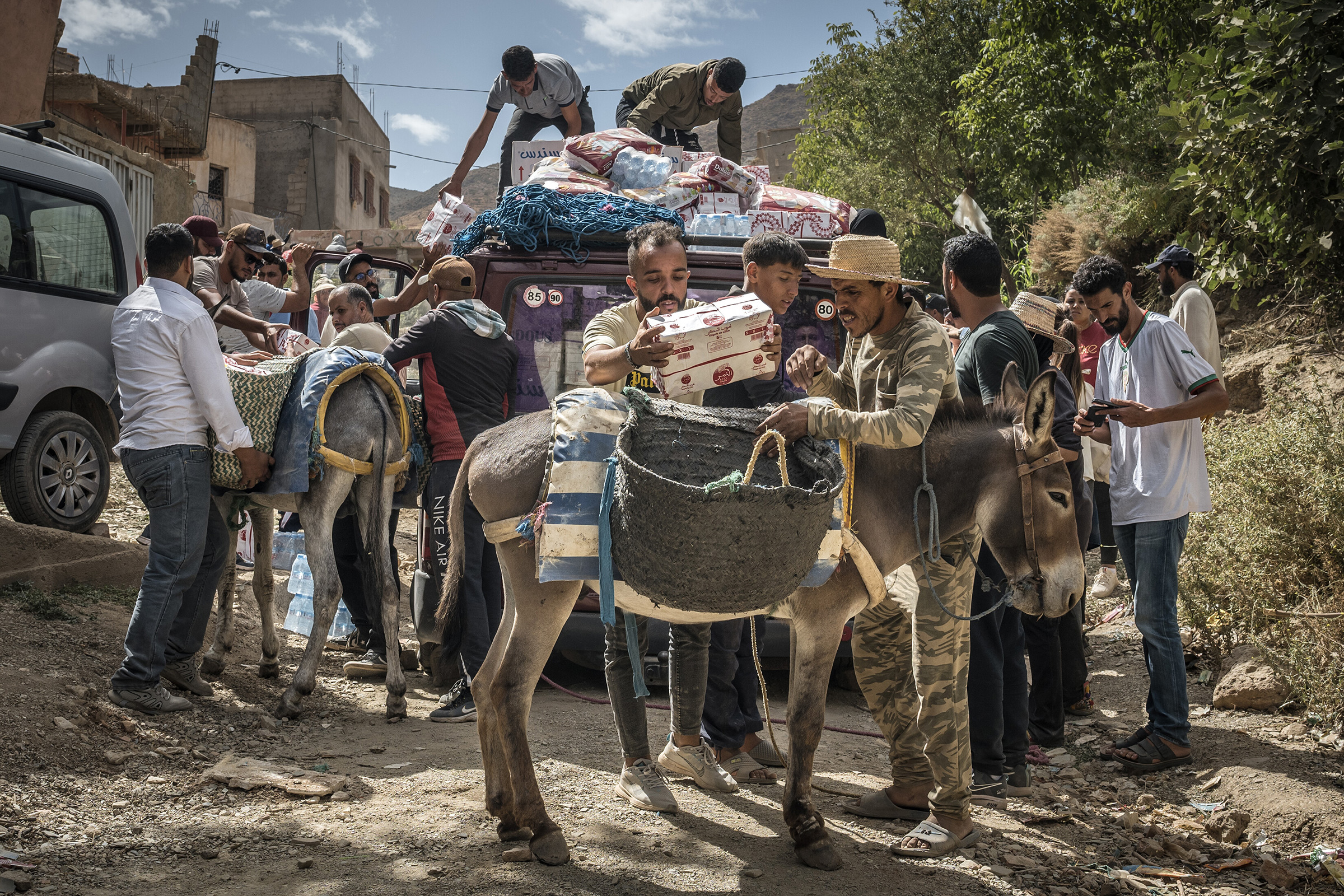
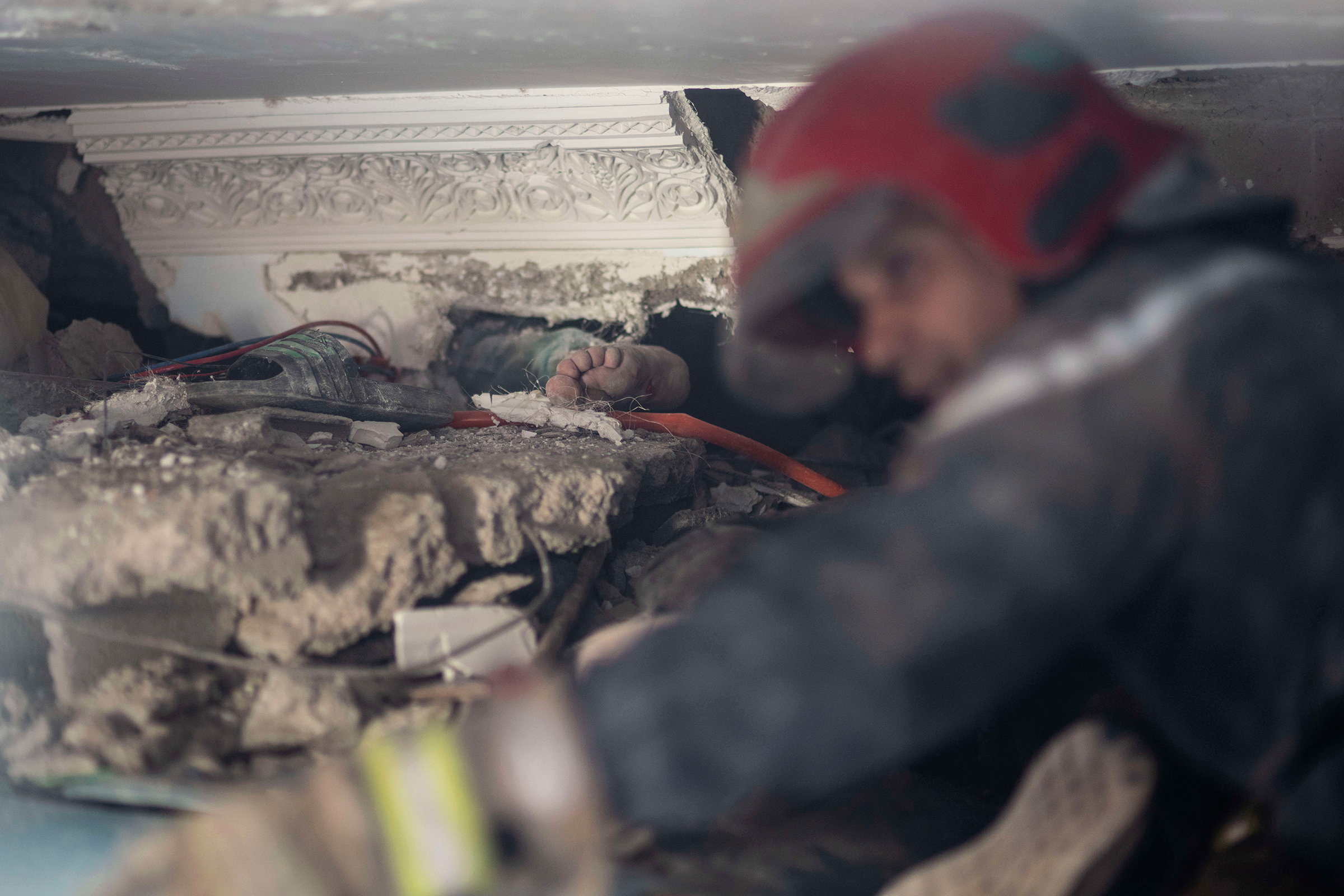
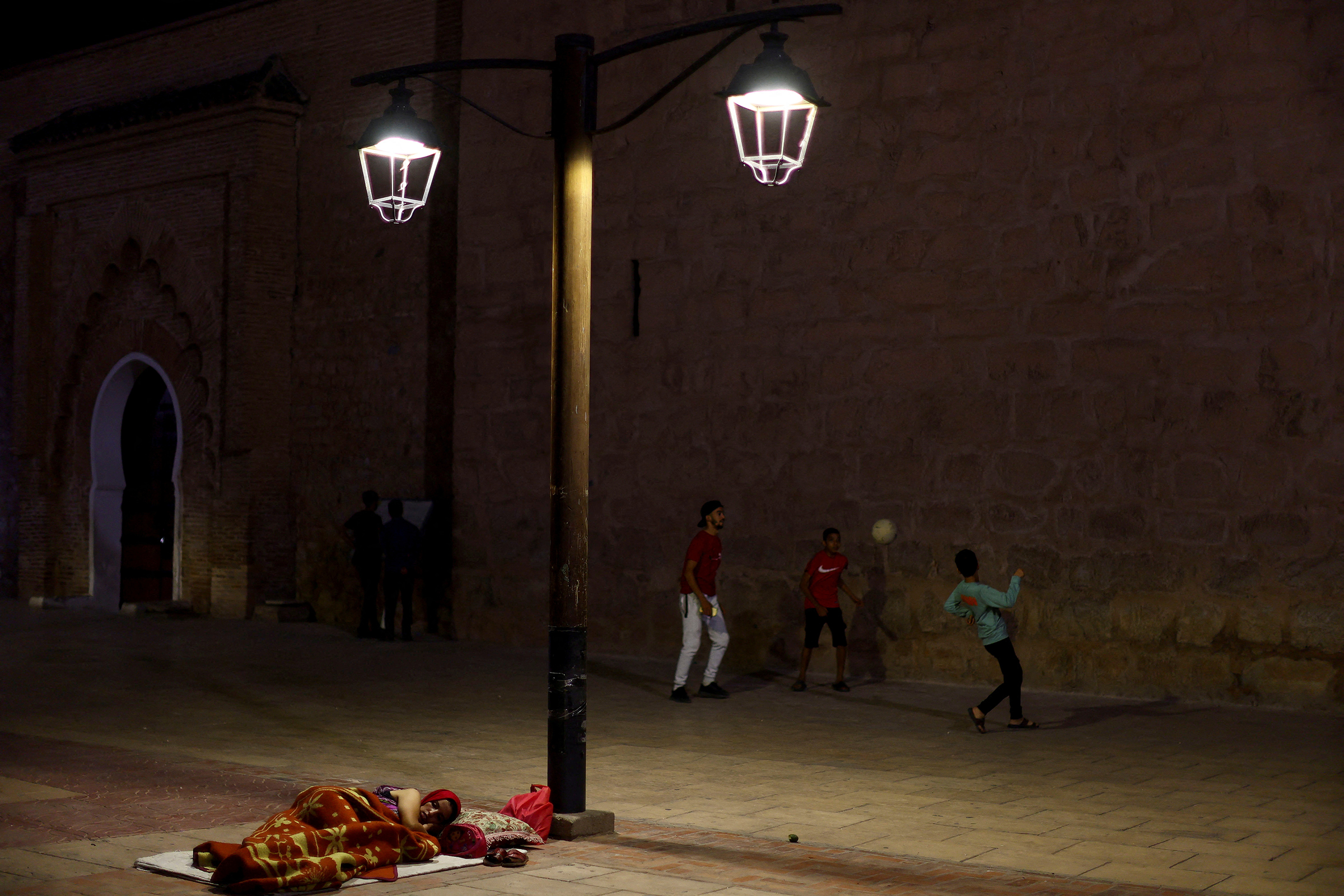
More Must-Reads from TIME
- Cybersecurity Experts Are Sounding the Alarm on DOGE
- Meet the 2025 Women of the Year
- The Harsh Truth About Disability Inclusion
- Why Do More Young Adults Have Cancer?
- Colman Domingo Leads With Radical Love
- How to Get Better at Doing Things Alone
- Michelle Zauner Stares Down the Darkness
Contact us at letters@time.com
